I wrote something about local cops committing suicide.
what
I wrote something about local cops committing suicide.
what
What’s the sitch?
I don't feel like this title is going to get the praise it deserves. This is a good title.
Thepresenceofrhetoricaldiscourseobviouslyindicatesthepresenceofarhetoricalsituation.
But must a rhetorical situation involve rhetorical discourse? Is a situation "rhetorical" if it can potentially produce rhetorical discourse, even if that discourse is not actively present? Perhaps a sort of pre-rhetorical situation. And his use of the term "discourse" raises a question that is not dissimilar to those we were asking in the earliest readings of the year: what is discourse?
EDIT: nevermind, I read three more sentences and got my answer.
one capable of com-municating the realities and values true to them-selves
The rhetorical form a message takes is constructed specifically for the content; form must lend itself to content.
It seems Anzaldua is making an argument concerning rhetorical form. No existing language (form) is appropriate for conveying the meaning and message, and thus a new language must be created for this unique content. (the "realities and values true to themselves").
We are robbed of our female being by the masculine plural. Language is a male discourse.
The use of the phrase "female being" here is interesting, since it not only implies a direct and tangible connection between language and identity, but also between language and actual physiology; a physical reality is "robbed" through the system of language. Language, then, is not only a means of constructing identity, but also a means of robbing someone of their identity and physiological reality.
Who is to say that robbing a people of its language is Jess violent than war? -RAY GWYN SMITH'
This is particularly evident when examining American policies aimed at "civilizing" native peoples and remaking tribal worlds in the image of America (and by extension, England and Western civilization). A central piece of the violence the American government perpetrated against Native peoples of North America was forcing them to abandon their own languages in favor of English. In other words, "taming" the native populations of North America inherently involved the "taming" of a "wild tongue."
Anzaldua has shown that one can do such switching and mixing while communicating very powerfully.
I am reminded of the following quote from Donis Dondis that I stumbled upon while doing research for my capstone that involves visual communication (particularly, film):
"...content is never detached from form."
The phrasing of this last sentence of the biography is interesting, as I think it touches on this tension between content and form, and it makes an important point about Anzaldua's rhetoric. The author notably writes "while communicating very powerfully" rather than "while communicating something very powerfully." The author is suggesting that it is the form of Anzaldua's rhetoric, not the content, that is powerful. Perhaps, then, the form and content of this rhetoric cannot be differentiated between.
Though perhaps Anzaldua's bilingual style raises the questions, "what is form?" and "what is content?"
polyvalent
definition: having a chemical valence usually greater than two
Having exactly zero experience with chemistry, I had never seen this word, but this is a great word to describe her multilingual approach.
Belia!, in act more gracefitl and h11mane; A fairer person lost not Heav'n;

Rhetoric
Coming from the same guy who titled two of his works "Is There a Text in this Class?" and "There's No Such Thing as Free Speech, and It's a Good Thing, Too" this title is... underwhelming.
herefore, rhetoric is necessary for civilized life.
I would be curious to hear how Fish would define "civilized life" here. I would imagine that the definition of "civilized life" that Protagoras might put forward would be too dismissive of certain cultures.
I also am curious if this assertion would go both ways. Is civilized life necessary for rhetoric? Can rhetoric only be founded in civilized life? And again, the definition of "civilized" here is key.
conservative idealogue Dinesh D'Souza)

Fish wants to know how that change occurs.
Maybe I'm misunderstanding him, but is the passing of time too simple an answer for this?
Both recognize that a new idea or way of seeing-a new "paradigm"-does not come into being without being argued for. This is the operation, Fish says, of rhetoric.
With Corder's understanding of "arguments" in mind, it seems "paradigm" here might operate in the same way as "narrative." Perhaps a new "paradigm" is formed and adopted when two narratives collided into each other? This might also explain how how paradigm shifts sometimes seamlessly occur across generations... the changing meaning of a word, for example.
The mean-ing emerges as a result of the act of reading
Meaning not as an object of solitary concept, but as an act (perhaps even a motion to some degree?), particularly an act of construction and creation.
Argument is emergence toward the other
This is another interesting use of a word ("argument") that I believe is commonly used in a different fashion.
I think many would argue (there was no other word to use here, sorry) that "dialogue" would be a more appropriate term to use here. The common use of "argument" implies "confrontation" which, for whatever reason, has aggressively negative connotations. "Dialogue" is more often used today to describe the process of learning of the experiences of others (thus the popularity of phrases such as "Intergroup Dialogue"); Corder would probably describe that process as "emergence."
But argument is not something to present or to displa
Furthermore, this model of argumentation is extraordinarily easy to undermine; argumentation as simply "display and presentation" is a vapid concept as it does not necessarily require any truth or reality. (See: Chicago)
it eventually becomes a matter of my poster against yours, with the prize to the slickest performanc
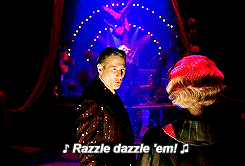
exordium
definition: a beginning or introduction especially to a discourse or composition
Sometimes we don't see enough. Sometimes we find enough and see enough and still tell it wrong. Sometimes we fail to judge either the events within our narrative or the people, places, things, and ideas that might enter our narrative
This sounds an awful lot like the Rashomon Effect, a term that was popularized by Akira Kurosawa's film Rashomon in which a murder is described by a number of witnesses in contradictory manners. The Rashomon Effect describes the phenomenon when an event is interpreted and reconstructed by a number of individuals in inconsistent manners. A number of filmmakers including Orson Welles, Christopher Nolan, and Quentin Tarantino have all made films that build off of this idea of Kurosawa's. All of these films construct a unique narrative by combining a number of "flawed" narratives -- that is, if a "flawed narrative" can even exist, a subtler assertion of Kurosawa and his imitators.

Rhetoric as Love
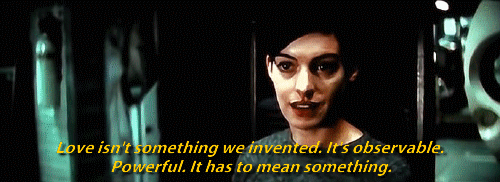
Sometimes we teach ourselves not to know that there are other narratives
This is often seen as being at the core of social privilege; those groups that sit at the top of all of the different social power structures can often fool themselves into believing that their experience is the only experience.
See: the dismissal of the Black Lives Matter movement by white America.
The choosing we do to make our narratives (whether or not we are aware of the nature of our choosing) also makes our narratives into arguments
Taylor Swift declaring that she "would very much like to be excluded from this narrative, one that [she] never asked to be a part of" during her feud with Kim and Kanye is relevant here, I just can't decide how.

(EDIT: @kpolizzi's annotation below is actually very relevant to this... this feud can pretty much be understood as their narratives impinging upon one another.)
histories
Etymology of history (n): late 14c., "relation of incidents" (true or false), from Old French estoire, estorie "story; chronicle, history" (12c., Modern French histoire), from Latin historia "narrative of past events, account, tale, story," from Greek historia "a learning or knowing by inquiry; an account of one's inquiries, history, record, narrative," from historein "inquire," from histor "wise man, judge," from PIE wid-tor-, from root weid- "to know," literally "to see" (see vision).
Related to Greek idein "to see," and to eidenai "to know." In Middle English, not differentiated from story (n.1); sense of "narrative record of past events" probably first attested late 15c. Meaning "the recorded events of the past" is from late 15c. As a branch of knowledge, from late 15c.
narrative
Etymology of narrative (adj): mid-15c., from Middle French narratif, from Late Latin narrativus "suited to narration," from Latin narrat-, stem of narrare
Etymology of narrative (n): "a tale, story," 1560s, from Middle French narrative and from narrative (adj.).
Etymology of Narration (n): early 15c., from Old French narracion "account, statement, a relating, recounting, narrating, narrative tale," and directly from Latin narrationem (nominative narratio) "a relating, narrative," noun of action from past participle stem of narrare "to tell, relate, recount, explain," literally "to make acquainted with," from gnarus "knowing," from PIE suffixed zero-grade gne-ro-, from root gno- "to know
we are after all creating our narratives "in here," ourselves always agents for what can be known
This is an interesting characterization of the crafting of narrative. Corder here seems to identify the process as being primarily internal; our narratives are perhaps more important to ourselves (our understanding of the world, our identities) than to any "external" parties we may share with. Narratives are often crafted solely to be shared, but Corder here seems to suggest that those narratives that are most impactful are those which remain internal.
Here would also be a good place to consider the different ways the term "narrative" is popularly used. Corder seems to be particularly interested in lived experiences and the narratives they naturally construct. However, the term is also often used to describe wholly fictitious stories.
fiction-makers/historia
It's striking that Corder places these two groups in such close proximity here. Both are narrative forms, but too often people place a larger value on one or the other.
Would Corder suggest that fiction and history (let's assume those terms are independent of one another for the sake of this question) accomplish the same thing? How would Corder differentiate between these concepts? Would he differentiate between them?
A Grammar of Motives
This is such a fantastic title, perfectly encapsulates the ideas of rhetoric as a means of shaping attitudes and producing action.
the study of rhetoric, much maligned by literary critics of the day, is precisely what is needed to understand the effects not only of literature but of all forms of discourse.
It is interesting that, in the higher education landscape of the 21st century, this view of rhetoric seems to have been more widely accepted by Communication scholars more so than English Literature scholars. I think that the tension between Communication and English departments at so many universities is absurd, but the focus that Burke places on effects and tangible reactions seems to be the cause of this tension.
My point in saying this is that Burke seems to be solely interested in rhetoric as a form of communication.
he opposed the aesthetic view of literature
Burke's views of literature exists in total opposition to those writers who worked during the Decadent Movement in the late 19th century. Oscar Wilde would despise Burke.
he defines rhetoric as the use of language to form atti-tudes and influence action.
One, it's interesting to see Burke come out so confidently with a definition of rhetoric.
Second, this is a really interesting definition. It places a huge emphasis on the manipulative power of rhetoric. Its emphasis on action is also unique; while some writers have made flimsy connections between action and rhetoric in the past, Burke's firm assertion of such a connection makes him stand out from the pack. This definition seems uniquely qualified to explain protest, for example; a rhetorical act that is very specifically geared at producing some tangible action or change.
apply it to all forms of language use.
This is an ambitious task as it raises questions about the relationship between the different forms that rhetoric can take. This ambition reminds me of Whateley's extremely confident assertion that "...most of the rules of Speaking are of course applicable to Writing." In a similar manner, Burke's piece seems to be predicated on the idea that the rules of one rhetorical form can "of course" be applied to another. As discussed by @em_bley and @sophist_monster on the Whateley piece, there are obviously unique characteristics of each rhetoric form, the role of audience being one. The unique role of the audience in writing and speaking is also discussed at length by Douglass (also discussed by @em_bley) when he writes about how audiences reacted to him as a black rhetorician.
weak defense strong defense rhetoric richard lanham

required guidelines
FORCING us to keep track of our annotations is OPPRESSIVE and SILENCES our organic voice and STIFLES creative thinking.

Frederick Douglass
He is an example of someone who's done an amazing job and is being recognized more and more, I notice
hus "truth" is u rhetorical construction arising from the creative use of lan-guage to make an effective social arrangement.

It is the copy in sound of a nerve stimulus.
While Nietzsche seems uneasy about suggesting there is a connection between an object and a sign, it is curious to see him draw this connection between the sign and the creator of said sign; there is a physical, biological connection between rhetoric and the rhetorician.
one can-astonishing in things. All that conformity to law, not for a single instant dispense with in thought, which impresses us so much in the movement of for one would thereby dispense with man him-the stars and in chemical processes, coincides at self.
feedback loop between Man and His metaphors: metaphors are made by Man, but Man is made by His metaphors.
But we produce these reprcscnta- beneath those bulwarks which 1presently exist. lions in and from ourselves with the same neces-And he requires shelter, for there are frightful sity with which the spider spins.
Nietzsche's use of metaphor throughout this entire piece is relevant, but I particularly like the imagery of a spider spinning a web that he utilizes here. It suggests that, just as a spider weaves a web for protection and for a home, Man finds security and hospitality in the metaphors of language. I think the fact that spiders use their webs as a means of capturing prey is also relevant here.
an eter-nally repeated dream would certainly be felt and judged to be reality.

But when the same image has been generated millions of times· and has been handed down, for many generations and finally appears on the same occasion every time for all mankind, then it acquires at last the same mean-ing for men it would have if it were the sole nec-essary image and if the relationship, of the origi-nal nerve stimulus to the generated image were a strictly causal one.
This touches on the relevance of history to language and meaning that @em_bley discussed on the Campbell piece; the passage of time plays a critical role in the construction of meaning.
faith
Interesting word choice here. "Faith" suggests a (potentially total) lack of objective evidence as to meaning, but rather a religious conviction toward the belief in its existence.
He forgets ~Cli'lt vtrh1.I n.n\,sO\ 11 that the original perceptual metaphors arc metaphors and takes them to be the things them-selves.
This is the last time, I promise, but the relevancy of this film to this piece is pretty extraordinary, especially because this sentence alone could serve as the thesis of Lynch's film. (Here's another scene that builds upon this concept).
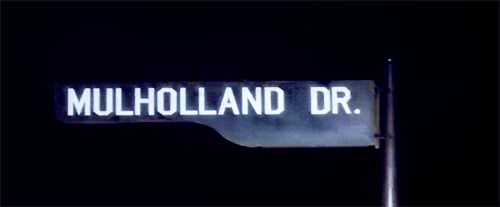
man as a mighty genius A)J ·:.,,,.';. of construction, who succeeds in piling up an in-finitely complicated dome of concepts upon an II! .i'. unstable foundation, and, as iL were, 'on running 1 • • .t.c !'\ water.
This statement could probably operate as this piece's thesis.
Thus, lo express it morally, this is the duty to lie according to a fixed convention, lo lie with the herd and in a manner binding upon everyone.
![]()
coins which have lost their em-bossing and arc now considered as metal and no longer as coins.
Hmmm. Would this example not suggest a connection between an object's physical, material nature and its sign? Does Nietzsche not reject all possibility of this connection in the last page?
Truths arc illusions which we have forgotten arc illusions;

It is this way with all of us concerning language: we believe that we know something about the things themselves when we speak of trees, colors, snow, and flow-ers; and yet we possess nothing but metaphors for things-metaphors which correspond in no l 13ur-l4...) way lo the original entities. 10
Nietzsche here expresses a total separation between the sign (language) and its object ("trees, colors, snow and flowers"). There really is nothing, for example, about a tree that warrants the name "tree."
To begin with, a ---."'-nerve stimulus is transferred into an image:9 first h <="-,\-metaphor. The image; in turn, is imitated in a 11\A,t,~k. sound: second metaphor. And each time there is --z:__ a complete overleaping of one sphere, right into . , .. , the middle of an entirely new and different one.
Language is a series of complementary signs (metaphors) layered on top of one another. Language is not a palpable or tangible "thing," but rather a series of representations of that thing(s).
tau-tology
Definition: needless repetition of an idea, statement, or word; an instance of tautology
Are designations congruent with things? Is Ian+ guage the adequate expression of all realities?
Once again, Nietzsche's preoccupation with the subjectivity of language echoes that of Campbell.
They arc deeply immersed in illusions and in dream images; their eyes merely glide over the surface of things and sec "forms." Their senses nowhere lead to truth; on the contrary, they are content to receive stimuli and, as it were, lo en-gage in a groping game on the backs of things. Moreover, man permits himself to be deceived in f I his dreams every night of his life.
So much of this piece reminds me of the films of David Lynch, specifically Mulholland Drive. Much as Nietzsche is fascinated by language as a sign of something rather than something in itself, Mulholland Drive is a film that is more interested in exploring the vapid nature of cinema and the nothingness of film. Throughout the film, Lynch pulls the rug out from under his audience repeatedly, bluntly drawing attention to the fact that film is only the representation of genuine experience or emotion, leaving viewers alone with the nothingness that film actually is. Everything in Mulholland Drive is a "surface of things" (as Nietzsche would put it) rather than an actual thing. The best example of this is the "Club Silencio" scene in which the club's emcee repeatedly yells "No Hay Banda." However, when a number of musicians emerge on stage immediately after this proclamation, viewers still are surprised when these acts are revealed to be nothing but hollow, fraudulent performances, merely a "surface of things."
The deception of dreams that Nietzsche touches on here is also another central theme of Mulholland Drive as Lynch explores the disorientation and terror of nightmares.
The moral of this annotation is Mulholland Drive is a brilliant film that you absolutely must watch.
mendacious
Definition: given to or characterized by deception or falsehood or divergence from absolute truth
Once upon a time, in some out of the way comer of that universe which is dispersed into number-less twinkling solar systems, there was a star upon which clever beasts invented knowing.
Nietzsche is a tremendous writer for a number of reasons, but his willingness to fully embrace rhetorical flourish in his works makes him a one-of-a-kind voice. Beyond simple style, though, this also puts his philosophy concerning meaning into action; this "creative use of language to make an effective social arrangement" that is identified in the introduction is happening right here.
metaphors
Nietzsche seems to have some degree of curiosity concerning this term.
The etymology of "metaphor": late 15th century, from Middle French metaphore (Old French metafore, 13th century), and directly from Latin metaphora, from Greek metaphora "a transfer," especially of the sense of one word to a different word, literally "a carrying over," from metapherein "transfer, carry over; change, alter; to use a word in a strange sense," from meta "over, across" + pherein "to carry, bear"
The role of the term "transfer" in the evolution of this word is curious, as it suggests a certain level of action implicit in metaphor... metaphor as an activity.
We put our sub~ jectivc impressions of things into our words and therefore must negotiate their meanings. Language "designates the relations of things 10 men," and these relations arc expressed in "the boldest metaphors."
"Doubtless, if things themselves be understood, it does not seem material what names are assigned to them." (Campbell 905)
Nietzsche and Campbell seem to be equally concerned with the subjectivity of language, a concept that @em_bley and I discussed on the Campbell piece from a few weeks back. @em_bley raised some valid concerns that this view does not fully weight the importance of etymology.
tropes "are considered to be the most artistic means of rhetoric.
Nietzsche's use of "trope" here is interesting; the positive connotation is certainly distinctive from the negative connotation that the word has in our 2017 society. However, his high praise of tropes is fascinating and relevant, and though it is probably only tangentially related, it reminds me of this article from io9 which discusses how tropes in science fiction films ought to be viewed as positive artistic devices instead of negative ones:
"Even when a movie gleefully steals from everything it can get its grubby mitts on, as in the case of James Cameron's Avatar, that doesn't necessarily make it any less of an "original" story. Cameron may have admitted Avatar is basically Dances With Wolves in space, but he still came up with a cool new world (including the telepathic fiber-optic connection between people and creatures) and the neat plot device of a human occupying a genetically engineered alien body. Plus there was still no existing Avatar fanbase saying "if it doesn't have the big red dragon, I'm rioting."
Avatar is terrible, but not because of its use of tropes.
Language, Nietzsche goes on to say, conveys not sensations but "copies of sensa-tions," not things but images of our perception of things
A similar theory is put forward by Peirce in "On the Nature of Signs" where he discusses the interplay between a sign and its object and the fact that all words are not actual "things" but representations of things."
This view of language that Nietzsche puts forward here also happens to be the focus of the Senior Seminar this semester.
He suggcsL,; that if the work of the classic~I a~-thors strikes us as especially rhetorical in this sense, it may be because of their on· cntation to oral discourse and ours to written discourse, a difference that shows up in the highly developed rhythms of the classical authors' prose, compared with the relative flatness of ours.
This implicit differentiation between the rhetorical form of writing and speaking is a curious rebuttal to Whateley's implicit suggestion that the rules of Speaking can be fairly applied to Writing ("...most of the rules for Speaking are of course applicable equally to Writing"). Whateley's controversial assertion here is also rebutted by Douglass when he discusses the role of immediacy and identity in speaking. This connection was discussed at length by @em_bley on the Whateley post last week so I won't spend too much time on it here.
Beyond Good and Evil
Harry Truman
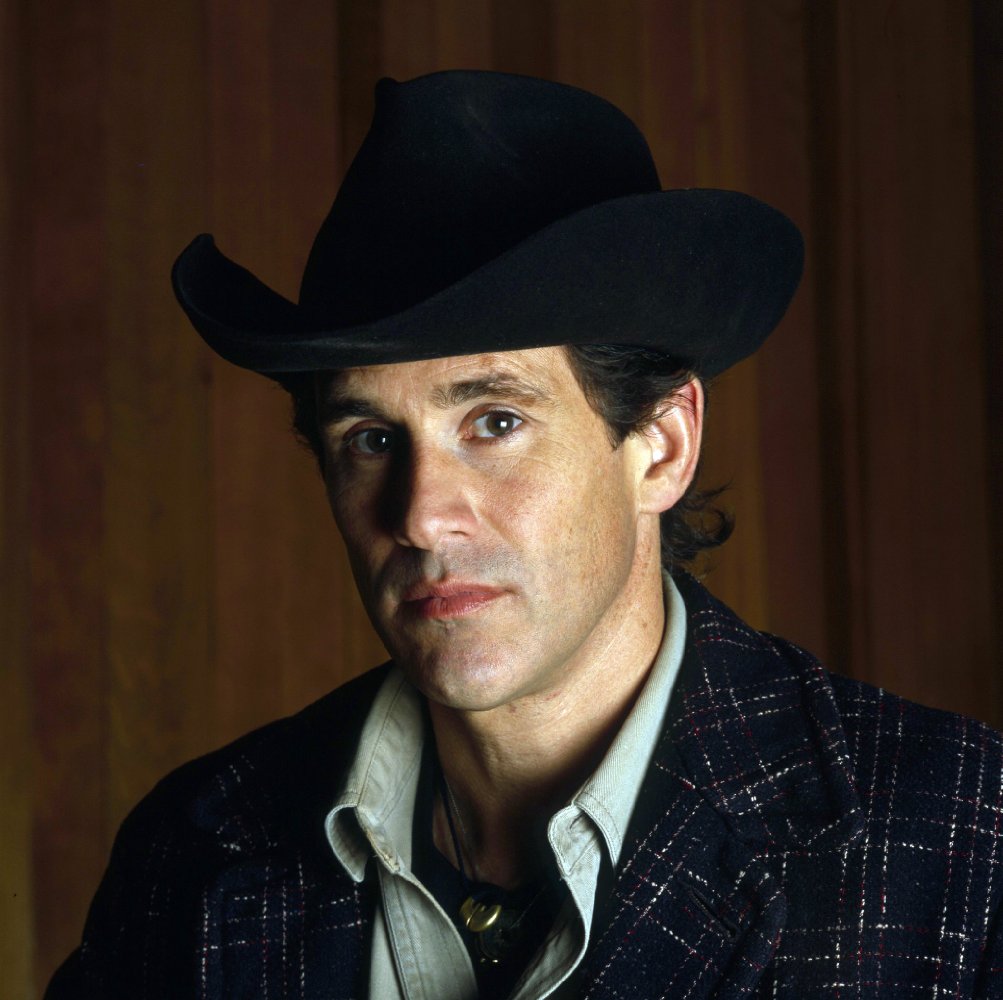
Some are merely amusing, but others have fueled wars, inquisitions, and genocides in which millions of people died
Campbell asserts that a rhetorician must "excite some desire or passion in the hearer" to "satisfy their judgment that there is a connexion between the action to which he would persuade them, and the gratification of the desire or passion which he excites"
“connect the dots to make a picture.”
"Truth itself is elusive" - Campbell
This conspiracy theorist suggest that the "elusiveness" of Truth is dependent on one's willingness to "connect the dots."
When an alleged fact is debunked, the conspiracy meme often just replaces it with another fact.
Campbell's discussion of moral reasoning presented as a "bundle" rather than a "causal chain" is relevant here; it seems that the author of this piece is suggesting that conspiracy theorists present their "facts" in a form that is different from the "causal chain" that Campbell disapproves of. Theorists are able to replace their debunked facts with other facts because they are not connected to one another in a chain-like fashion.
pancgyrical,
Definition: a lofty oration or writing in praise of a person or a thing; eulogy.
torpid
Definition: having lost motion or the power of exertion or feeling; numb
(I am really into some of Campbell's word choice throughout this whole piece)
Campbell's
![]()
The orator must "excite some desire or passion in the hearers" and then "satisfy their judgment that there is a connexion between the action to which he would persuade them, and the gratification of the desire or passion which he excites."'
This sounds like the concept of the motivated sequence (take public speaking, folks) where the speaker inspires the audience to take action, and I think this concept is brilliantly illustrated in Mark Antony's speech from William Shakespeare's Julius Caesar. This brief clip from the Mankiewicz film demonstrates how Mark Antony provokes a unique passion from his audience that directly leads to action - the chaos that consumes Rome in the second half of the play/film. There a plenty of examples of this motivated sequence from pop culture, but Shakespeare/Mankiewicz/Brando illustrate it brilliantly.
Moral reasoning thus presents a bundle of evidence rather than a causal chain.
I found the use of the terms "bundle" and "chain" in comparison to one another rather interesting here. I think this is an effective image to use when discussing Campbell's view of moral reasoning. Campbell's rejection of the "causal chain" when discussing the effectiveness of evidence is interesting as I think "evidence" is a term that naturally evokes the necessity of causality; pieces of evidence must connect to one another, for example, to tell a story. I think Campbell's preference for the "bundle" image when discussing moral evidence is jarring at first glance, but effective upon closer consideration. His assertion that this kind of evidence cannot be axiomatic is better supported by this image.
feminist
I think that the use of the term "feminist" is an interesting topic to discuss as so many of these readings focus on the total subjectivity language. As a man I definitely do not think I am the person who should be deciding what it means to be a "feminist," but I do think this term has lost some of its meaning as people have begun to tailor what it means to be a feminist to their own beliefs. Take for example individuals who are so-called "Pro-life feminists," that is, feminists who do not believe in feminism.
But again, I am not the individual who should be defining what it means to be a feminist. Just an interesting example where the subjectivity of language has been made clear. I also am unsure whether we can label an individual a feminist if they pre-date the very concept of feminism.
Rather than acting through a model of exclusion or opposition, ‘normalisation’ assimilates the ‘abnormal’ as part of the ‘normal’ state and its proper function, turning the body into an object of strict control and under constant surveillance.
These same anxieties are the focus of so many post-human science fiction films (particularly those from the 80's) where an abnormal human body is normalized. The language of this passage especially reminded me of Robocop where the protagonist effectively loses control over his body and is constantly surveilled by his corporate creators.
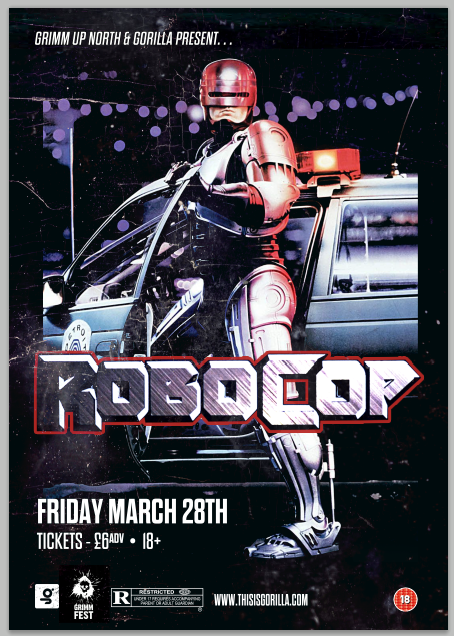
Auscultation
Definition: the act of listening to sounds arising within organs (such as the lungs) as an aid to diagnosis and treatment

paroxysm
Definition: "a fit, attack, or sudden increase or recurrence of symptoms (as of a disease); convulsion"
Language reveals the processe~ of reason, passion, and imagination
This seems to me to be a strikingly optimistic approach to rhetoric. Does Vico believe all language reveals these processes?
Rather, taste is the basis of judgments not only about what is beautiful (or personally pleasing) but also about what is virtuous.
A curious conflation of opinion, virtue, and beauty. I like this understanding of "taste" as I think it expresses the attitude that opinion is equivalent to fact that has emerged in the past few years with the rise of social media.
Hume's famous opposition to religion
As someone who spent last semester studying "Dialogues Concerning Natural Religion," I think declaring that Hume famously opposed religion may be a stretch; he certainly seemed to object to certain elements of organized religion, but did not wholly disregard theology or the belief in God. I think that is an important distinction to understanding Hume.
applies the words of any language to ideas different from those to which the common use of that country applies them, however his own understanding may be filled with truth and light, will not by such words be able to convey much of it to others, without defining his terms.
The greatest rhetorical challenge of the Trump Era?
What is a Fact?

do it with quickness.
Good writing is tight and to the point.
The great disorder
Disorder from the imperfection and subjectivity of language...

unavoidable obscurity in a11cie111 authors.
Can we place our culturally agreed upon meaning of language on language from the past? I think not, and I think this is spot on. After all, rhetoric metamorphoses throughout time and space. Because of that, there will absolutely be obscurity in ancient authors.
as the names of colours to a blind man, or sounds to a deaf man, need not here be mentioned.
Language and its meaning is determined by each individual's unique experience.
when any word does not excite in the l,,J/ ~ hearer the same idea which it stands for in the mind of the speaker.
Tension between the intentional meaning of language (that is, the intention of the utterer) and the effectual interpretation of the same language (that is, the interpretation of the interpreter) is a common theme of Charles Peirce's writings. Peirce believed language had to be accessible to the "commens," or a space in which the mind of the utterer and the interpreter is joined together; the commens is a space of common understanding concerning language.
For since sounds are voluntary and indifferent signs of any ideas, a man may use what words he pleases to signify his own ideas to himself: and there will be no im-perfection in them,
An interesting concept that emphasizes the total subjectivity of language; a word's meaning is rooted in a common agreement reached in society. This is not a revolutionary idea now, but still a simple fact that I believe is often forgot.
This reminds me of the discussion of colors in The Odyssey in Rickert's piece from last week. Blue is only blue because society has agreed on what blue is and how it is represented. As Homer's jarring use of colors demonstrates, the meaning of words such as "blue" are totally subjective.
Ideas, says Locke, arc the signs of real things
This concept of ideas and language as signs is reminiscent of the writings of Charles Peirce, whose writings on rhetorical meaning classified "signs" into three categories: likenesses (icons or imitations), indications (signs that shows something about things), and symbols (signs that are associated with their meaning by usage). Peirce asserts that signs are determined by their (real) object, a sentiment that is echoes here by Locke.
(Learned from Juliana Chow)
altcmpls to understand knowledge as a psychological phenomenon.
A bit of an open-ended question, but... how might this relate to Rickert's exploration of rhetoric as rooted in one's psychological experience, and even biological programming of an individual? It seems Locke would agree with such an assertion if knowledge is a psychological phenomenon.
but rather importing one’s way of being in the world, including howone sees that world. It is no longer a problem of culture alone but worlding—how waysof being, and the practices particular to such ways, take shape through bio-technicintra-action in social and info-material environments
This entire paragraph was a fascinating exploration, but I believe this section is particularly noteworthy when considering the different ways to understand rhetoric. The idea of "...importing one's way of being in the world" is a really excellent way of approaching rhetoric, as I think it is broad enough to capture all traditionally understood rhetorical acts (writing, speaking, painting, etc) while portraying rhetoric not as mere expression, but as a physical activity in one's identity and one's experience. Rhetoric as an exercise in one's biological programming... That's awesome.
explorers of the caves before the1800s—that is, before Western peoples had developed a concept ofprehistory—tendednot to see the cave art as significant.
when 19th century explorers don't recognize your cave art as significant rhetorical works
![]()
a large stalagmite structure deep in Bruni-quel Cave, located in Southwestern France,

needs(and not only bare survival)
This is a curious distinction between "needs" and "bare survival." I would be interested in hearing how Rickert believes these concepts differ from one another. It is fairly common to draw distinctions between "desire" and "need," but I am intrigued by the fact Rickert seems to complicate that juxtaposition by implicitly distinguishing between "need," "bare survival," and "desire."
performed
Though a fairly basic analysis of rhetoric, I love the use of the word "performed" here; it suggests an activeness about rhetoric.
"Perform" originates from an old French (fornir) meaning "to provide." While the purpose of rhetoric may be allusive, I think this root suggests that rhetoric (as a performance) ought to provide something notable for the audience. This suggests there ought to be some degree of substance to rhetoric; rhetoric must be justified. Rickert's implication that plaques and beads serve a purpose beyond abstract fashion is an example of rhetoric as a self-justifying act.
In this regard, rhetoric, or any other capacity of modern humans—music, art, language,technology—does not arrive on the scene as fully formed. Rather, it emerges out of needs(and not only bare survival), assembled and innovated from simpler or previously unas-sociated achievements
Rickert's use of "fully formed" here to discuss music, art, language, technology is striking to me. I think this raises an array of questions, such as "What is fully formed music?" and "What is fully formed art?" While I appreciate that he touches on the distinction between rhetorical devices that are constructed out of need and not mere desire, I find it odd he would suggest that those created out of need would be labelled as "not fully formed." Is this painting from Lascaux Cave a lesser art than something created in 2017? It is a bizarre superiority complex to find in this piece which, for the most part, seems to be concerned with celebrating Paleolithic rhetoric.
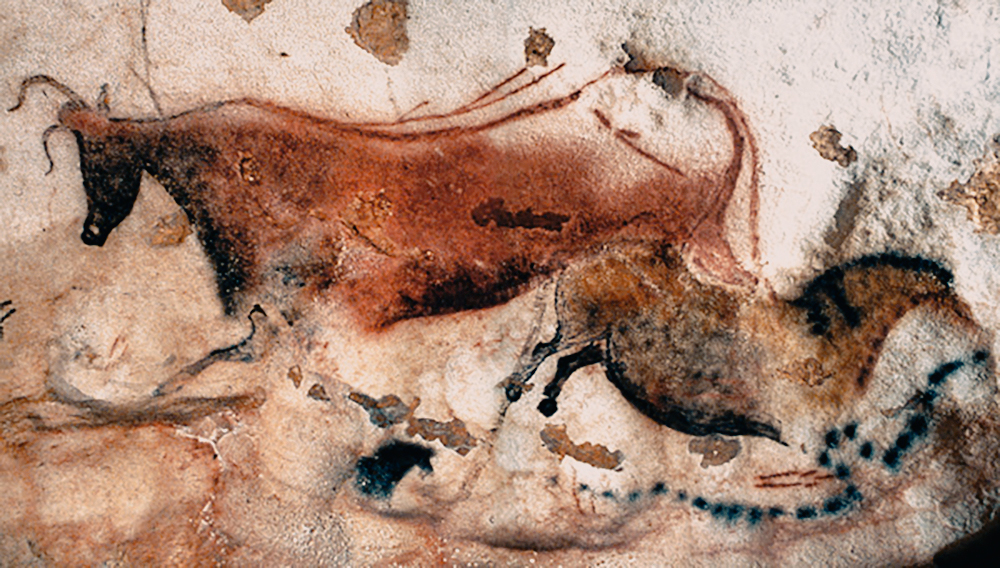
Why tether persuasiononlyto argument, judgment, andpraise, as opposed to other forms of inducement? Walker notes that the Orpheus imagecertainly conjures the notion of song as soothing
I was here reminded of a few other singing rhetoricians from Greek mythology: the Sirens that Odysseus encountered in The Odyssey. While their song, too, is inducing, unlike that of Orpheus, theirs is anything but "soothing."
It's interesting to see how rhetoric is weaponized in Greek mythology. Perhaps this demonstrates a certain anxiety surrounding it in Greek society?
The power of strong words to guide the soul constitutes rhetorical essence.
Interesting connection between rhetoric and spirituality. It reminded me of this scene from Exodus:
Moses said to the Lord, “Pardon your servant, Lord. I have never been eloquent, neither in the past nor since you have spoken to your servant. I am slow of speech and tongue.”
The Lord said to him, “Who gave human beings their mouths? Who makes them deaf or mute? Who gives them sight or makes them blind? Is it not I, the Lord? Now go; I will help you speak and will teach you what to say.”
...
The connection between spirituality (the divine) and strong rhetoric that Rickert alludes to here is made literal in this scene; the power of God is in His language and the eloquence he grants to Moses. The strong words granted to Moses/Aaron by God allow the prophet to guide the souls of the Egyptians toward Hebrew liberation.
If too much writing is exhausting (Seneca is thinking of the demands of style), excessive reading has a scattering effect: “In reading of many books is distraction.” By going constantly from book to book, without ever stopping, without returning to the hive now and then with one's supply of nectar —hence without taking notes or constituting a treasure store of reading— one is liable to retain nothing, to spread oneself across different thoughts, and to forget oneself.
Seneca would be appalled by the concept of www.netflix.com
Now, then, let the written account stand for the eyes of our fellow ascetics, so that blushing at writing the same as if we were actually seen, we may never ponder evil. Molding ourselves in this way, we shall be able to bring our body into subjection, to please the Lord and to trample under foot the machinations of the Enemy."
This process toward spiritual liberation and moral integrity by way of writing is subverted in "Death Note" where the "evil" thought (murder) is written and becomes reality. The "machinations of the Enemy" as described by Athanasius are brought to life by way of writing.

Those of us who traffic in this word, "rhetoric," have a great deal of experience with the ubiquity of the question "What is rhetoric?" and the countless idioms and situations in which it reappears.
Perhaps Muckelbauer's dilemma here is rooted in the fact he is a bad rhetorician.
The inability to craft an accessible definition or understanding of rhetoric for those who are not engaged with field is, in my opinion, bad rhetoric. Can rhetoric be justified if rhetoricians are unable to craft effective rhetoric to explain it?
We don't necessarily do an injustice to the diffuse history and conceptual promiscuity of the term by giving a single answer.
While offering a single answer to this question may appearing limiting, a basic study of rhetoric will tell you that the single answer is necessary as that is the rhetorical form that is demanded.
Or maybe we just haven't come up with an answer that is pithy enough yet.
In short: maybe our rhetoric is not effective as it ought to be.